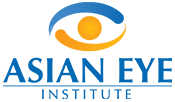
Does your eyelid turn inward and make you feel as if something is in your eye? Or does it turn outward that causes your eyes to feel dry, gritty, sandy o irritated? The problem could be entropion or ectropion. Entropion and ectropion are conditions that may affect both the upper and lower eyelids. According to Asian Eye Institute’s Eye Plastic Surgeon Dr. Franklin Kleiner, entropion occurs when the eyelid turns inwards, causing your eyelashes to rub against the cornea, the surface layer of the eye.
Ectropion, on the other hand, is when the eyelid turns outward, leading to excessive tearing or eye dryness, eye irritation or sensitivity to light. He explains, “Your eyes are lubricated when you blink. The tears drain into small openings called puncta, but because the lower lid is sagging, tears do not drain properly.”
Entropion and ectropion are usually brought about by aging. The eyelid turns inward or outward when the muscles surrounding the lower part of the eye weaken. People who suffer from eye infections and eye irritations are likely to experience entropion, while those who have facial paralysis, eyelid growths and burns or trauma in the face are at risk of ectropion.
Unfortunately, these conditions may also occur in children. “As a matter of fact, they may be congenital problems,” says Dr. Kleiner, “Extra folds of skin and muscle in the lower lid may cause the lashes to turn in. Ectropion may also be present in some patients with Down Syndrome.”
If eyelashes continue to rub against the cornea, entropion can cause abrasion, eye infections or corneal scarring. In ectropion, your cornea is left exposed, making you feel uncomfortable and more vulnerable to dry eyes and eye infections. You may even experience mucus discharge and crusting of the lids upon waking up. In severe cases, ectropion may lead to development of ulcers or sores on the cornea. If left untreated, both conditions can result in vision loss.
“That is why it is necessary for patients suffering from these conditions to seek immediate care, especially when they constantly feel they have something in their eye or when they start experiencing increasing eye redness, pain, decreasing vision and sensitivity to light,” he emphasizes.
Adult patients with entropion and ectropion are treated by undergoing lid-tightening surgery. Those with mild cases of ectropion are prescribed with artificial tears and ointments to relieve symptoms. Alternatively, surgeries are also performed in children to remove excess skin and muscles.
Asian Eye Institute has an experienced eye plastic surgeon who can help you with treatment or management of entropion and ectropion.






